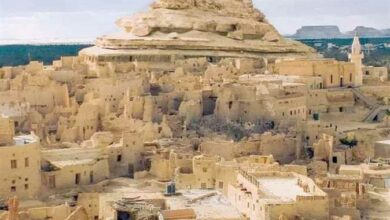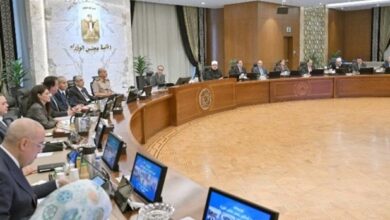It’s perhaps a matter of fortune that the most important revolution in Egypt’s recent history would coincide with the period of Egypt’s “demographic gift”. The old regime was either unaware of the unique opportunities afforded by Egypt’s demographic shifts, or they knew but intentionally neglected them. The latter is more likely to be the case.
Over the past three decades, and especially over the last five years, the Mubarak regime formulated development plans — if we may refer to them as such — around one primary idea, namely that Egypt is facing a significant population problem that threatens the country’s economic future. But this logic was mistaken. Anyone familiar with demographic studies knows that since 2010 Egypt has entered a phase of what’s called a “demographic gift” — when working-age citizens replace children and dependents as the single largest group in society.
Rather than embracing Egypt’s population growth as an opportunity, the old regime treated it as a challenge. Instead of creating a ministry of human development, they created a ministry of population whose only goal was to tackle the population problem. The old regime failed to ascertain Egypt’s unique human potential, and instead argued that the state was running out of resources to keep up with the increase in population. All decision-makers and state officials used this argument without giving it any thought.
To capitalize on the demographic gift requires that the Egyptian government shift its mindset and adopt a new approach to policy-making and planning. Strategies must be designed with an eye toward capitalizing on available resources, which in turn translates into qualitative shifts in sustained economic growth and development.
Capitalizing on the demographic gift would improve citizens’ quality of life by ensuring more job opportunities, reducing unemployment, and improving levels of development, leading to higher standards of living. This would in turn reflect positively on education, health, housing conditions, and spending. The benefits of the demographic gift can be quite significant.
In order for Egypt to fully seize this opportunity, it’s useful to study the experience of other countries that have experienced a demographic gift and made the most of it. The four “Asian Tigers” — Hong Kong, South Korea, Taiwan, and Singapore — went through a similar phase since the 1960s, where they successfully capitalized on demographic opportunities to develop their human capital for the purpose of economic development. In Singapore and South Korea, the percentage of working-age individuals increased by 72 percent over the last 40 years, while dependents dropped to an all-time low of 39 percent of the population in 2005. During this period, these countries were able to catch up with the industrialized West and forged effective partnerships with developed countries. They also increased individual and family income levels significantly as well as general living standards.
Among the primary reasons for this economic success was the fact that these countries cultivated an educated and skilled workforce. They offered the necessary training and education to their youth, ensuring their participation in technical and industrial development, and extended social protections to their working-age populations. As a result, a 1 percent increase in the Asian Tigers' working-age populations has usually been coupled with an estimated 1.5 percent increase in individual income.
In sum, the “Asian Tigers” were able to capitalize on the demographic gift to catch up with other advanced industrial countries. They did so by training their workforce and improving technology for production, and affording opportunities to newcomers in the labor market. This led to an economic and social leap, thereby hastening the achievement of their millennium development goals.
Egyptian policymakers in the new government have a responsibility to devise a plan to make optimal use of our country’s demographic gift. Egyptians must alert their governments to the importance of this opportunity and provide policymakers with the necessary information to devise appropriate development plans. Civil society must participate in designing these plans and regularly monitoring their implementation in order for Egypt to join the ranks of developed countries in the coming years. Egypt has been blessed with a revolution and demographic gift at the same time. The Egyptian people, and the youth in particular, must play an active role in proposing and overseeing development plans for the new Egypt.
Hisham El Rouby is the president and CEO of ETIJAH.




